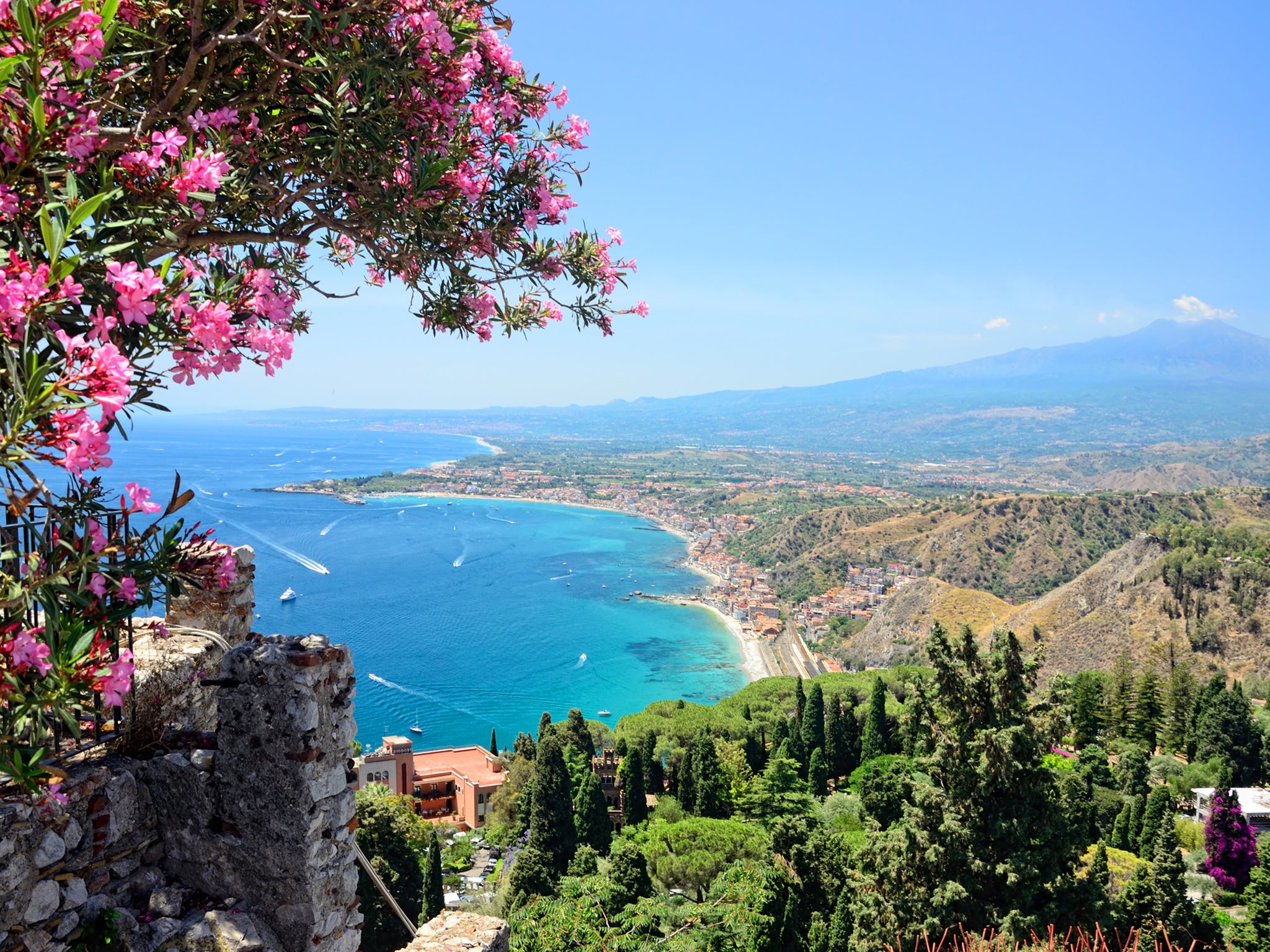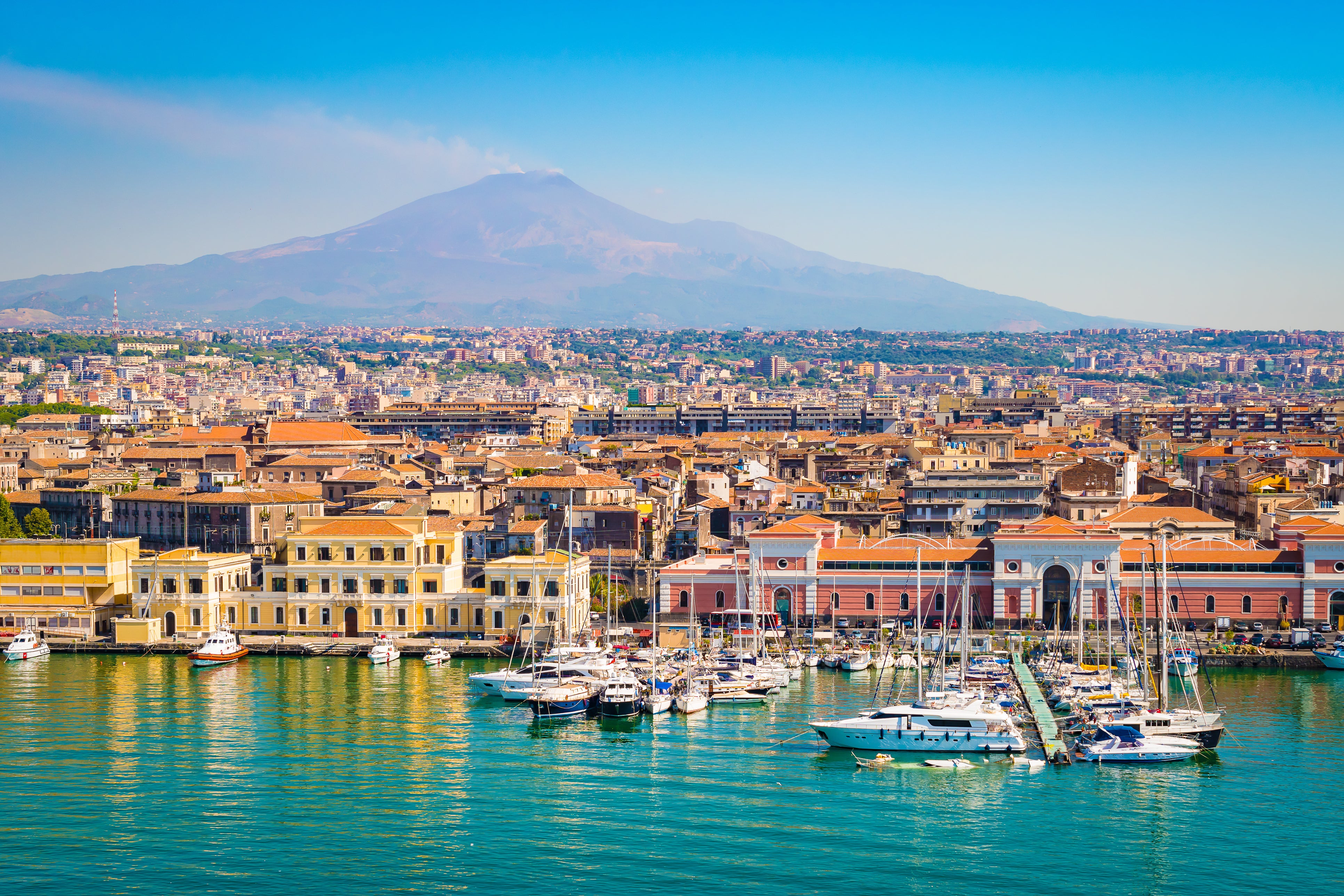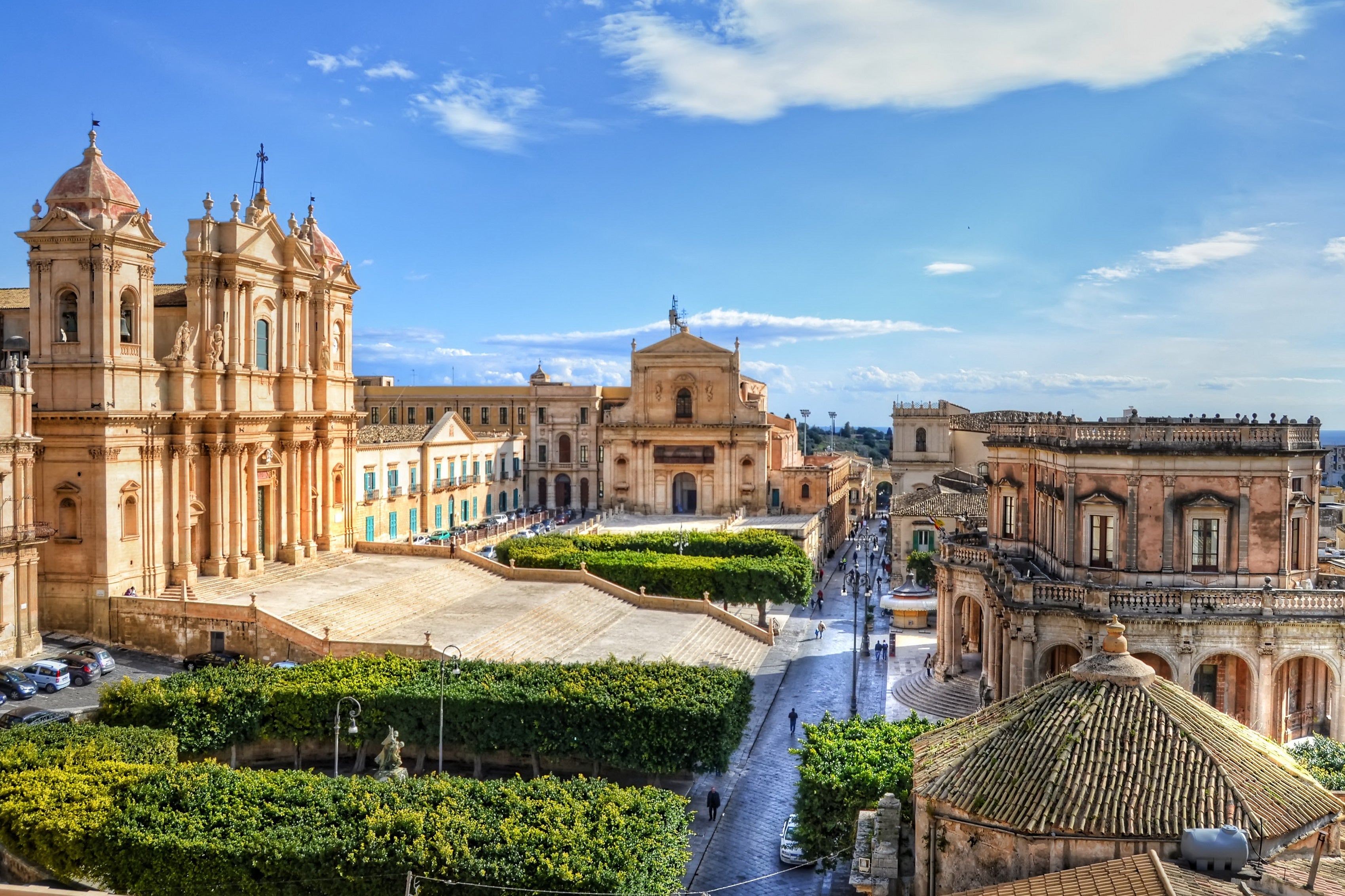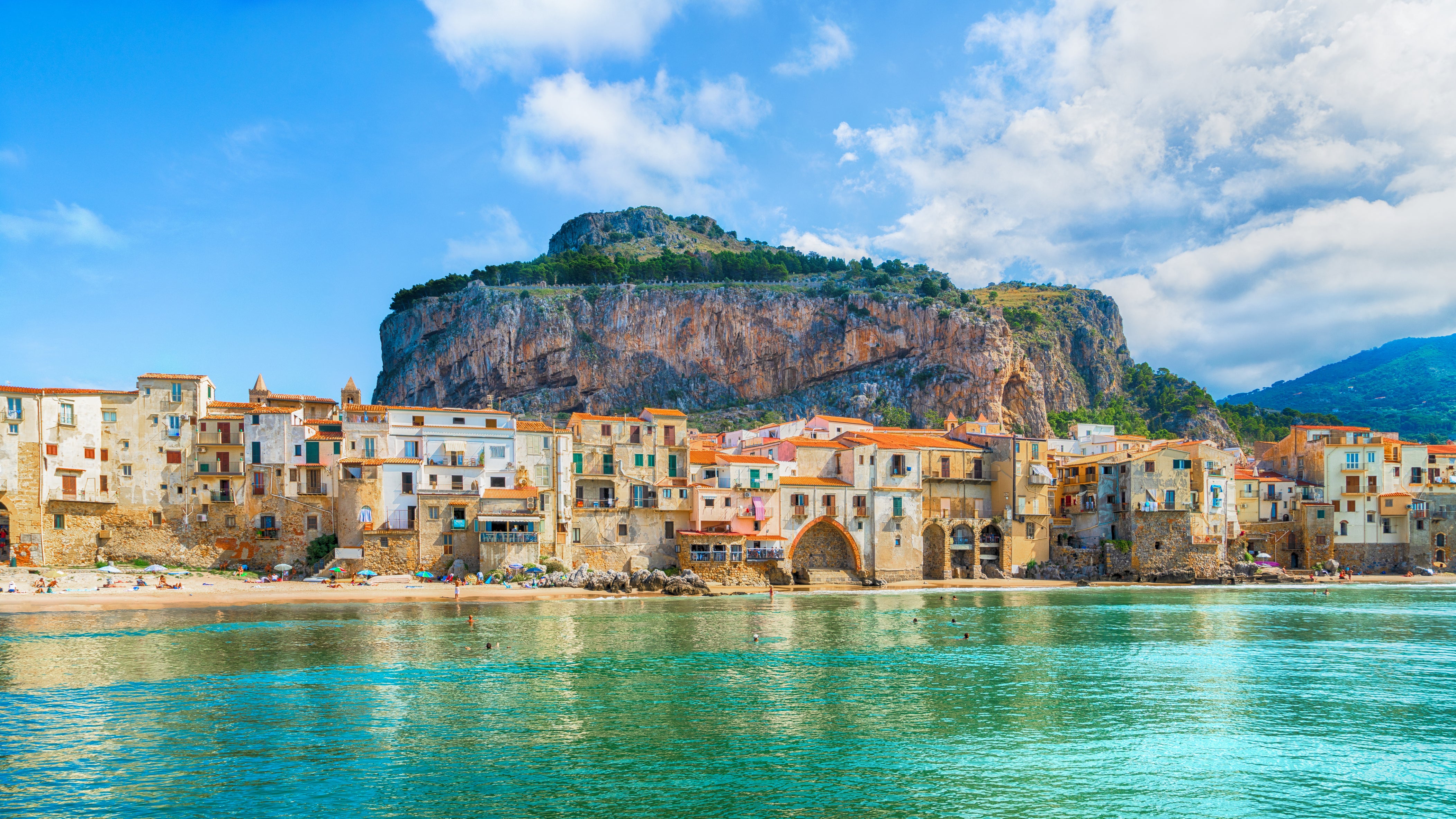Where to visit in Sicily: 9 best places for beaches, architecture and Italian charm
The southern Italian region is a year-round holiday destination

Thanks in part to the “White Lotus effect“ (the country featured in season two of the hit show), Sicily has become increasingly popular with travellers over the past few years. As the largest Mediterranean island, located just off the main peninsula of Italy, the country is home to beautiful beaches, quaint hilltop towns, and impressive architecture.
The summer months can get very hot – July and August are probably best spent sipping an Aperol spritz by the beach – while the less stifling temperatures in the low seasons are ideal for visiting festivals, exploring the many archaeological sites and maybe even taking a hike up Mount Etna.
Europe’s tallest active volcano is one of seven Unesco sites, which also include Roman palace Villa Romana del Casale near the central town Piazza Armerina, and the eight Baroque towns of the Val di Noto in the southeast.
Planning a Sicilian holiday soon? We’ve rounded up the best places to visit and where to stay during your Sicily trip.
Palermo

Capital city Palermo is a diverse destination with architectural nods to the Phoenicians, Normans, Turks, Egyptians, Arabs, and Spaniards, who have all inhabited the area throughout its history. One of these buildings is Palermo Cathedral, dating back to the 12th century. Ballaro market and Vucciria market are both popular for street food, and there are various culinary-based walking tours where you can tuck into gelato, arancini, and cannoli.
Read more on Italy travel:
The city is home to impressive street art, including a wall near Ballaro market, in the Albergheria district, where you’ll see a tiny hummingbird picking up a huge rock with its wings. There are theatres and cinemas in the industrial area Cantieri Culturali della Zisa, and the Old Town is a hub for nightlife with Piazza Rivoluzione and Piazza Sant’anna both offering a buzzy atmosphere. For a more relaxing outing, head to Mondello Bay to take a boat tour.
Where to stay
Mercure Palermo Centro is situated in the centre of Palermo, only 350 metres from the Teatro Politeama theatre, a 10-minute walk from the harbour and a 15-minute walk from Palermo Cathedral. It has a bar, restaurant, 24-hour front desk and private parking. Family rooms are available, too.
Read more: Best Sicily hotels
Agrigento

Agrigento in the southwest is built on a hilltop and is home to the archaeological wonder of the Valley of the Temples. The ruins are an impressive site to behold. Excavations uncovered a network of aqueducts below the area, and there are also thought to be further areas of unexcavated archaeological significance in the fields below. The Petro Griffo Archaeological Museum is in modern Agrigento, where you can view Hellenistic and Roman artefacts, ancient coins, and Attic and Italiot pottery dating back to 430 BC.
Just a 25-minute drive from the city you’ll find Scala dei Turchi – a dramatic white, rocky cliff overlooking a sandy beach where you can soak up some sunshine and swim in the azure waters.
Where to stay
Colleverde Park Hotel is a 15-minute walk from the Valley of the Temples. Amenities include a fitness centre, airport shuttle and a bar.
Castellammare del Golfo

Castellammare del Golfo translates into English as “sea fortress on the gulf” because it is built around an Arab fortress constructed in the 11th century (and later developed by the Normans). This history makes the coastal destination an incredibly interesting place to explore. Further appeal lies in it being a relatively quiet coastal town known for its pretty harbour filled with restaurants offering a picturesque view.
There are two sandy beaches nearby, while nature reserve Lo Zingaro is just a 15-minute drive. For boat trips and watersports, head to Scopello, a coastal town 12km away.
Where to stay
Hotel Cetarium is close to the town’s fortress and just a short walk to a sandy beach. It has a terrace and outdoor pool for enjoying the scenery too.
Read more: Best boutique and luxury hotels in Sicily
Erice

Medieval town Erice is in the province of Travani, and is best known for its Norman castle and ancient temple. The town is set 750 metres above sea level on Mount San Giuliano, and the ruins of the Venus Erycina temple suggest that the town was a tribute to the Roman goddess of love, Venus. Along the quaint cobbled streets, there are craft shops and bakeries selling cannoli. Tourists can visit the medieval church Chiesa Madre, which was built in 1312 and overlooks the main square.
For those seeking an even better view, a cable car links Erice with nearby city Travani.
Where to stay
Former monastery Il Carmine Dimora Storica is unique accommodation situated beside the town walls, with an airport shuttle and family rooms available. Most rooms have their own balcony.
Read more: Best cheap hotels in Sicily
Modica

A city located in the southeast, Modica is set within the Hyblaean Mountains. It’s one of the eight Val di Noto Baroque towns with Unesco world heritage site status and was originally all carved into rock. The city boasts classic Sicilian charm, with narrow, winding streets and stairs. This means the climb to Upper Modica is a steep one – or you can catch a bus.
You’ll find boutique shops and 19th-century theatre Teatro Garibaldi on Corso Umberto. Meanwhile, nearby museum Museo Civico is situated in Palazzo della Cultura and is home to archaeological pieces from the Neolithic period. The town is also known for its chocolate, made using a traditional Sicilian technique where ingredients are never warmed to more than 45C, meaning the sugar doesn’t dissolve so it has a unique taste.
Where to stay
Pietre Nere Resort & Spa is a luxurious hotel on the outskirts of Modica, and nearby beach Cava di Ispica can be reached by car in less than five minutes. Spa facilities include a fitness centre, sauna, sensory showers, Turkish bath and relaxation room.
Taormina

Taormina is a coastal hilltop town in the east of Sicily. One of its most impressive attractions is the ancient Greek and Roman theatre, Teatro Antico di Taormina, which is carved into rock – as well as being a tourist attraction, the venue still hosts performances, including concerts and festivals. From the theatre, there’s a view across to Mount Etna, which is just 56km away.
Mazzaro Funivia is a cable car running down to Isola Bella Beach, a strip of pebbled beach linked to the Isola Bella nature reserve that is particularly popular with Instagrammers. Meanwhile, Mazzaro Beach on the other side of Isola Bella Beach is a small bay with sand and shingle, close to bars and restaurants.
Where to stay
Well-located Hotel Ariston and Palazzo Santa Caterina are situated near the city centre, main bus terminal and just beside a cable car taking you to the beach. The hotel has a swimming pool, garden and two restaurants.
Catania

Catania is an ideal base for making a trip to Mount Etna and you’ll find plenty of choice for guided tours up to the volcano. Other tourist attractions include the Cathedral of Saint Agatha, which features Baroque details. It has been rebuilt several times since being originally constructed in the 11th century, courtesy of earthquakes and eruptions.
Like other Sicilian towns, you can expect to find delicious street food on offer. Fish market La Pescheria is a weekly event known just as much for being a fun and rowdy spectacle as it is for supplying seafood to nearby restaurants.
Where to stay
Katane Palace Hotel is situated close to the train station and features classic Sicilian decor. It’s just a 20-minute walk from the cathedral, and trips to Mount Etna can be arranged with the hotel, too.
Noto

Golden Noto, a Baroque city in the southeast, has airy aristocratic squares laden with carved gargoyles, opulent palaces and elegant alleyways. Noto’s reconstructed 18th-century cathedral dominates the skyline with its elaborate domes and facades – visit during the annual feast of San Corrado in February to attend mass alongside a lively procession through the city.
Visit the king of pastries, Caffe Sicilia, opposite the cathedral on Corso Vittorio Emanuele for famed sweet Sicilian classics including cannolo ricotta pastry tubes and cassata marzipan cake.
Where to stay
At Seven Rooms Villadorata on the 18th-century Palazzo Nicolaci, soaring ceilings, chandeliers and Baroque frescoes greet guests. There are also tasty buffet breakfasts of cakes, eggs and almond brittle, all just a 15-minute drive from the fine sands of Lido di Noto.
Cefalu

On the northern coast, medieval Cefalu balances some of Sicily’s finest sands with impressive Baroque architecture. Celebrated for its Unesco-listed Arab-Norman cathedral, the antiquities of Mandralisca Museum and laid-back beach culture on spiaggias Mazzaforno and Settefrati, Cefalu rivals Palermo for a Sicilian holiday.
Try local delicacy pasta a taianu (pasta in a pan) for flavours of aubergine, meat and pecorino cheese served in an earthenware pot, or hike to the mountaintop ruins at Rocca di Cefalu for views over the sparkling Tyrrhenian coast.
Where to stay
Coastal hotel Le Calette is just a shuttle bus away from the sandy swathes of Cefalu. With whitewashed Sicilian-style rooms, a restaurant serving sea urchin spaghetti and five rocky coves complete with a beach club, it’s a dream for swimming and tasting sumptuous local cuisine.
Read more: Why you should wait until the off season to visit Venice
Join our commenting forum
Join thought-provoking conversations, follow other Independent readers and see their replies
Comments